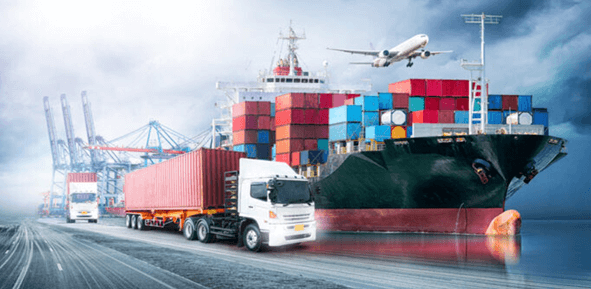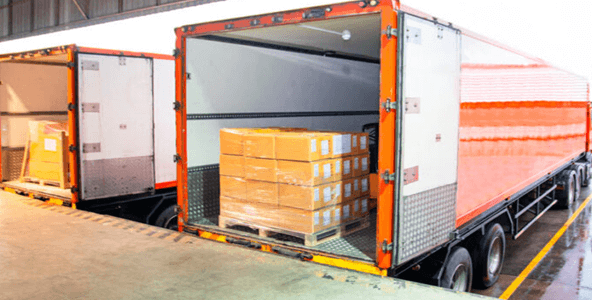The globalization of trade has impacted the supply chain of many industries, among the greatest benefits: is a reduction in cost. However, with cross-border goods movement, the logistics of the sales and goods fulfillment process now consists of a wide range of stakeholders. The solar industry is experiencing unprecedented growth due to changing environmental sentiment by both consumers and regulators. This growth has resulted in the logistics of solar panels coming under scrutiny. This article discusses several logistics considerations that relate to requirements by customers and regulators, such as transport determination, operational efficiency as well as placing environmental concerns at the forefront of decision making.

Table of Contents
Customer Requirements
As with many mass market consumer goods, solar panels are also subject to many different variations. Some key aspects that customers could consider would be size, efficiency and weight. With the main gripe consumers have regarding solar panels being the amount of space it takes, the design of the solar panels matter, especially if the project is residential and for housetops. Panel efficiency directly affects the power output of the panel and is dependent on the technology used and can differ from manufacturer to manufacturer. Generally, the higher the efficiency of the panel, the more coveted it is. Weight is an important factor, as solar panels are widely installed by hand, meaning the installer would have to carry the panel onto the frame for installation. For rooftop installations, this could pose a safety risk to the workers. The panel weight is especially important to projects relating to residential projects, as an overload could pose a serious safety hazard. Home roofs are generally not expected to take such a heavy load and exceeding the stipulated load could result in structural failure and safety risk. With just these considerations, customers could have a variety of different requirement mixes, resulting in different shapes, weights, and types of products that need to be managed at every step of the supply chain.

Export Compliances
Before shipping any product, it is always important to check if there are any export regulations that have been imposed by the customs office. Non-compliance could result in a fine or even blockage of goods moving out of the country. These nine steps describe the general flow from sales to export:
- Step 1: Receive an inquiry
- Step 2: Check buyer against restricted export list
- Step 3: Apply for export permit
- Step 4: Provide a proforma invoice
- Step 5: Finalize the sale
- Step 6: Prepare goods and documentation
- Step 7: Run a restricted party screening
- Step 8: submission of forms and shipping physical cargo
- Step 9: Keep records
Different customs offices might have differing requirements regarding solar panels. Sellers should always conduct the restricted buyer checks early to avoid unnecessary and wasteful amendments later on.

Transport Determination
Solar panels can be palletized and are thus able to be shipped by air, sea, rail and trucks. Each method has its own pros and cons, with most shippers opting for a combination of both. Contractually, there are two options for combination shipping: multimodal and intermodal shipping.

Multimodal shipping results in the shipper only holding one contract with a logistics service provider, despite the cargo transiting through multiple modes of transport. Intermodal shipping requires the shipper to engage and sign contracts for each of the different modes of transport. Engaging a Logistics service provider would be a good choice for exporters without experience as this helps to streamline the export process, thus allowing for peace of mind for the exporter.
Packaging Requirements
The main function of packaging is to protect the cargo and cargo protection has many facets to consider. Within cargo protection, the choice of material and design must be durable enough to withstand the load of the solar panels as well as the handling expected. A design that is not durable enough would result in breaches in the packaging and could result in damaged cargo. This is especially important as solar panels are fragile and susceptible to micro-cracks on the solar cells. When deciding the material, one consideration to have would be if it is in the company’s interest to reduce pollution. The company’s stance greatly affects the approach to be taken and can be a deciding factor when cost and values clash.
The full content is only visible to SIPMM members
Already a member? Please Login to continue reading.
References
Admin (2019). “5 Factors To Consider When Choosing Packaging Materials” Retrieved from https://www.hunterindustrialsupplies.com.au/blog/qualitiesofpackaging/, accessed 25/03/2022.
Ask Truckload (2021). “Guide to Freight Shipping Solar Panels”. Retrieved from https://usatruckloadshipping.com/guide-to-freight-shipping-solar-panels/, accessed 25/03/2022.
Balaji Vidhya, DLSM (2021). “Key Considerations for Selecting Transportation Mode” Retrieved from SIPMM: https://publication.sipmm.edu.sg/key-considerations-selecting-transportation-mode/, accessed 25/03/2022.
Jennifer Watts, Kyle Bagin (2010). “Critical Technology Assessment: Impact of U.S. Export Controls on Green Technology Items”.Retrieved from https://www.bis.doc.gov/index.php/documents/technology-evaluation/137-impact-of-u-s-export-controls-on-green-technology-items/file#:~:text=Exports%20of%20solar%20panels%20made,qualified%20solar%20cells%20and%20assemblies., accessed 25/03/2022.
JOSNA (2021). “Solar Panel Sizes and Weights – Complete Guide”. Retrieved from https://www.electronicshub.org/solar-panel-size/, accessed 25/03/2022.
Kate Lim Boon Yar, DLSM (2020). “Effective Packaging for Outbound Logistics”. Retrieved from SIPMM: https://publication.sipmm.edu.sg/best-practices-building-sustainable-supply-chains/, accessed 25/03/2022.
Marketing & Communications (2017). “Intermodal vs. Multimodal: What is the Difference?” Retrieved from https://www.macandrews.com/intermodal-vs-multimodal-difference/?cn-reloaded=1, accessed 25/03/2022.
Nurjanna Binte Hamid, DLSM (2020). “Considerations for Selecting Transportation Mode”. Retrieved from SIPMM: https://publication.sipmm.edu.sg/considerations-selecting-transportation-mode/, accessed 25/03/2022.

